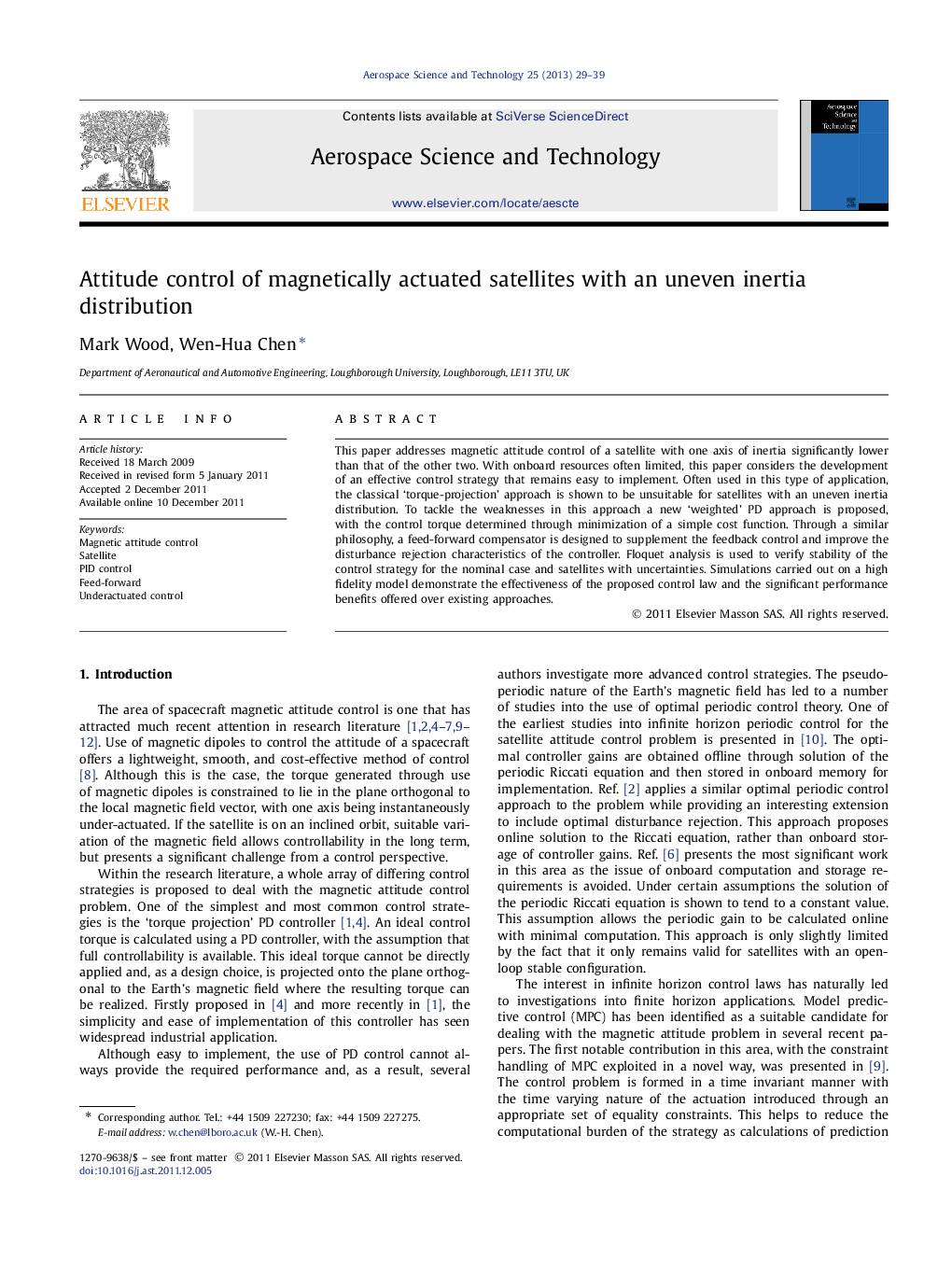| Article ID | Journal | Published Year | Pages | File Type |
|---|---|---|---|---|
| 1718225 | Aerospace Science and Technology | 2013 | 11 Pages |
This paper addresses magnetic attitude control of a satellite with one axis of inertia significantly lower than that of the other two. With onboard resources often limited, this paper considers the development of an effective control strategy that remains easy to implement. Often used in this type of application, the classical ‘torque-projection’ approach is shown to be unsuitable for satellites with an uneven inertia distribution. To tackle the weaknesses in this approach a new ‘weighted’ PD approach is proposed, with the control torque determined through minimization of a simple cost function. Through a similar philosophy, a feed-forward compensator is designed to supplement the feedback control and improve the disturbance rejection characteristics of the controller. Floquet analysis is used to verify stability of the control strategy for the nominal case and satellites with uncertainties. Simulations carried out on a high fidelity model demonstrate the effectiveness of the proposed control law and the significant performance benefits offered over existing approaches.
